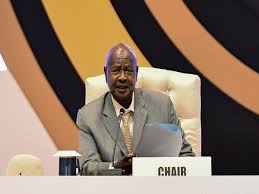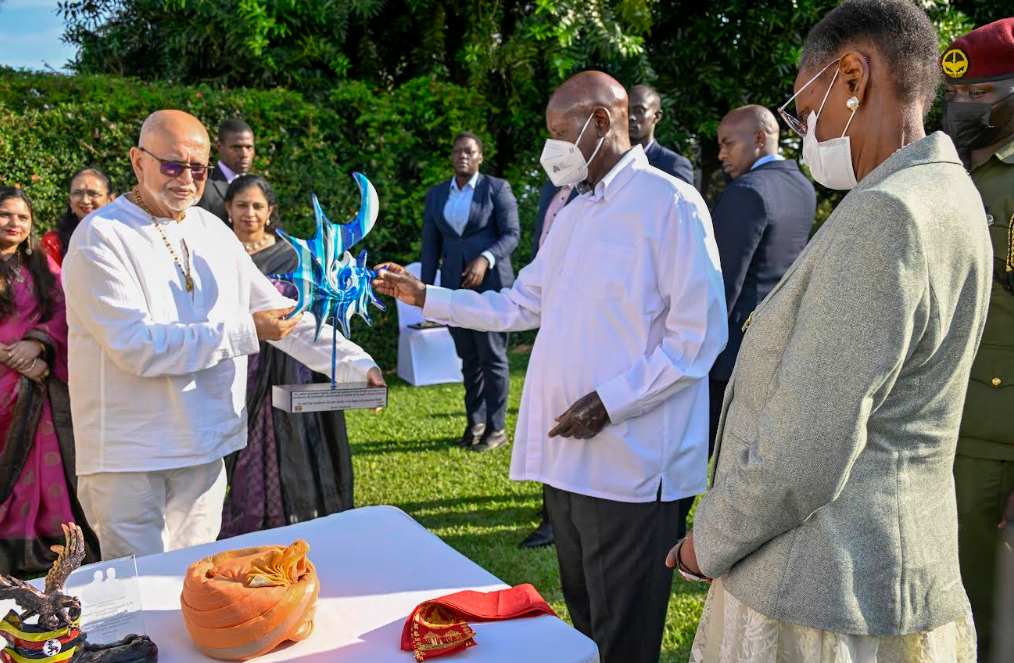Uganda has witnessed a remarkable economic transformation over recent decades, much of which is credited to the vibrant Indian diaspora residing in the country. Recently, President Yoweri Museveni's engagement with the Indian community during the Diwali dinner celebrated this pivotal role of the Indian diaspora, reaffirming their significance in Uganda's socio-economic development. This blog explores the historical context, economic contributions, and future impact of this community on Uganda’s growth, highlighting why their partnership with the government is a cornerstone of the nation’s progress.
Historical Context and Recovery
The Indian community in Uganda has a long and complex history. Before the 1972 expulsion under Idi Amin's regime, Indians owned and operated a vast majority of Uganda’s businesses and were responsible for a significant portion of the country’s tax revenue. Their sudden expulsion was a severe economic blow, causing GDP decline, loss of manufacturing output, and disruption of key industries. The policies of the 1970s severely damaged Uganda's economic foundation due to the loss of skilled entrepreneurship and capital.
However, since the late 1980s and through the 1990s, under President Museveni’s leadership, Uganda actively welcomed back Indian returnees, encouraging them to reinvest in the economy. Museveni’s pro-business stance and forgiveness policies, including restoration of properties, helped restore confidence among the diaspora. Today, with less than 1% of the population, Ugandan Indians contribute up to 65% of the country’s total tax revenue and dominate strategic sectors like manufacturing, trade, finance, and real estate.
Economic Contributions of the Indian Diaspora
President Museveni's recent Diwali dinner speech extolled the economic successes of the Indian community, noting that Indian returnees have established over 900 factories across Uganda. These factories not only generate employment but also contribute significantly to Uganda’s industrial growth, export capabilities, and import substitution efforts.
The Indian diaspora has been instrumental in key sectors:
Sugar production, where they introduced modern techniques and expanded capacity.
Hospitality, boosting tourism and enhancing Uganda's profile as a travel destination.
Steel manufacturing, supporting infrastructural development.
Retail and wholesale trade that connect Uganda with global supply chains.
Ugandan billionaire businessman Sudhir Ruparelia, whose family origins trace to the Indian community, stands as a testament to the economic impact of this diaspora. His business empire spans banking, real estate, and education, illustrating the broader potential for wealth creation nurtured by this community.
The Government’s Role and Diaspora Engagement
President Museveni highlighted the government's commitment to deepening relations with the Indian diaspora by improving the investment climate, easing bureaucratic hurdles, and fostering inclusive industrial policies. The Diwali dinner served as a platform for dialogue on future collaborations, emphasizing the diaspora’s role as both investors and cultural ambassadors.
Museveni also recognized the diaspora’s contributions not only in the economy but also in social cohesion, pointing to their philanthropic activities, cultural events like Diwali, and educational initiatives that enrich Ugandan society.
Challenges and Future Outlook
Despite its successes, the Indian community and Uganda face challenges such as occasional xenophobic sentiments and bureaucratic inefficiencies that can hinder investment. However, proactive government policies, public recognition events like the Diwali dinner, and growing economic integration signal a brighter future.
The enhanced cooperation between Uganda and India, exemplified by President Museveni’s engagement, is expected to strengthen trade ties, attract new investments, and facilitate technology transfer. This partnership is critical in Uganda’s ambition to become a middle-income country and an industrial hub within East Africa.

Conclusion
President Museveni’s recent engagement with the Indian diaspora during the Diwali dinner is not just a celebration of a cultural festival; it is a recognition of years of contribution that have transformed Uganda’s economy. By honoring the Indian community’s integral role, Uganda is reaffirming its commitment to a diverse, inclusive, and progressive economic future. This partnership stands as a powerful example of how diaspora communities can drive growth and development in their countries of residence.







Leave a Reply